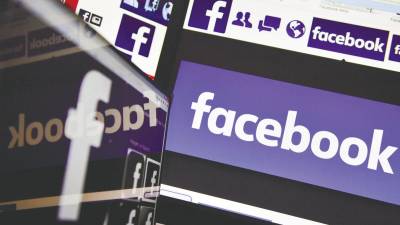WE all make mistakes – some big, some small. But now, thanks to social media, a single wrong move can become a viral moment and sometimes ruin lives. That is the harsh reality of cancel culture. At first, cancel culture seemed like a good thing. It gave power to the people. When celebrities or companies did something offensive or harmful, the public held them accountable. No more sweeping things under the rug – it felt like getting justice. However, somewhere along the way, cancel culture stopped being about accountability; it often feels more like public punishment. Now, social media acts as judge and jury, with millions of people piling on, calling names and demanding consequences without context, facts and most importantly, compassion. It is no longer just about celebrities; even random people find themselves in the crosshairs of cancel culture. Regular folks caught on camera during a bad moment can become the target of online outrage. For example, take the schoolboy who ate on an MRT train. He was probably hungry after a long day and made a small mistake. But instead of compassion, someone recorded him, posted the video online and let the internet tear him apart. His face and actions were broadcast to thousands, maybe even millions, over a simple mistake: bringing food onto public transport. He is just a teenager, not a criminal, but people online just did not care; they wanted to vent their anger on someone. This is the scary part of cancel culture. It strips us of our empathy, making us forget that the people we are attacking are also human – someone with feelings, has a family and personal struggles we do not know of. Instead, it turns the internet into a place where people are afraid to speak, afraid to act, and ultimately, afraid to be imperfect. Of course, some actions deserve
to be called out, such as racism, abuse and corruption. These are serious issues that should never be ignored. But there is a big difference between calling something out and tearing someone down. Accountability means giving people a chance to understand, apologise and grow. Cancel culture does not always allow for that. Instead, it is more like: “You messed up. You’re done. Forever.” And what message does this send? That people cannot change? Does one mistake define our whole life? Even worse, cancel culture can silence important conversations. People stop sharing opinions or asking questions out of fear that they may say the wrong thing and be “cancelled”. It creates a culture of fear instead of one of learning. And when we are too scared to talk, how can we grow? The media plays a huge role in this, too. News outlets love stories that spark outrage. Headlines are designed to grab attention, not to explain. And when a person is being dragged online, the media often joins in instead of helping people understand the full story. The more clicks, the better. But at what cost? We need to start bringing empathy back into the conversation. Before we share that video, before we comment something cruel, before we hit repost, ask: Who is this person? What is the full story? Are they really a villain or just someone who made a mistake? Social media is powerful; it can expose injustice, uplift voices and create change. But when it is used to destroy instead of educate, to shame instead of understand, we all lose. Everyone deserves a second chance. Everyone deserves to be seen as more than their worst moment. So maybe instead of cancelling people, we should start teaching, listening and forgiving because a kinder internet starts with each of us choosing empathy over outrage.
Hanan Addeena Arman is an undergraduate student at
Universiti Malaya. Comments: letters@thesundaily.com
